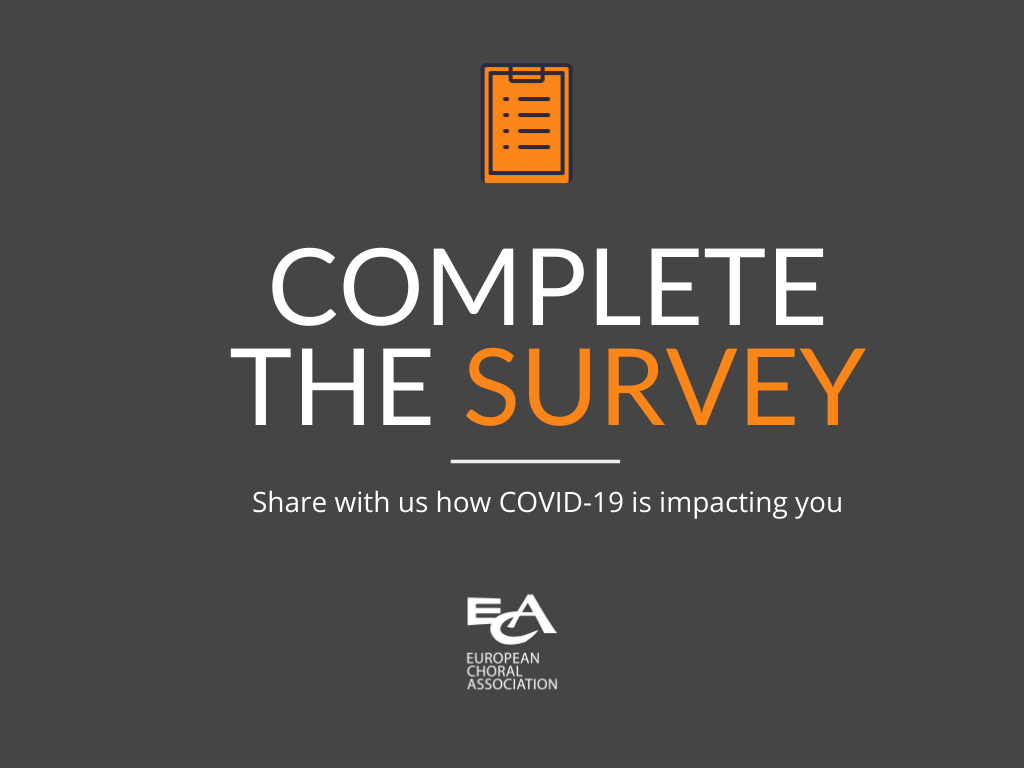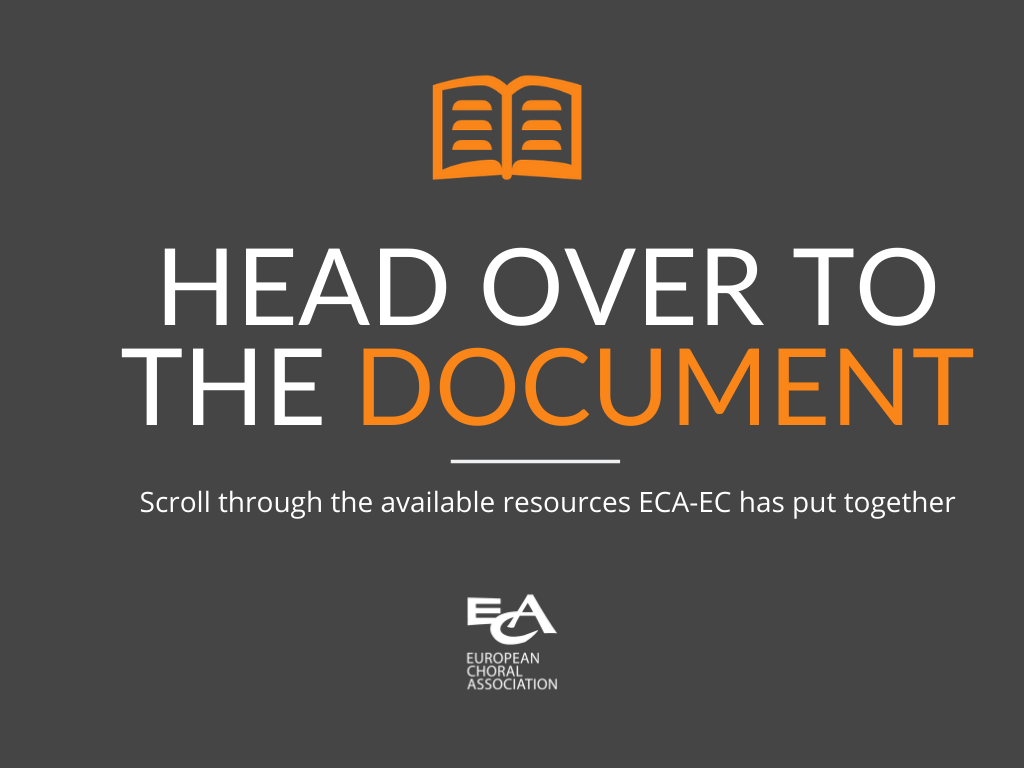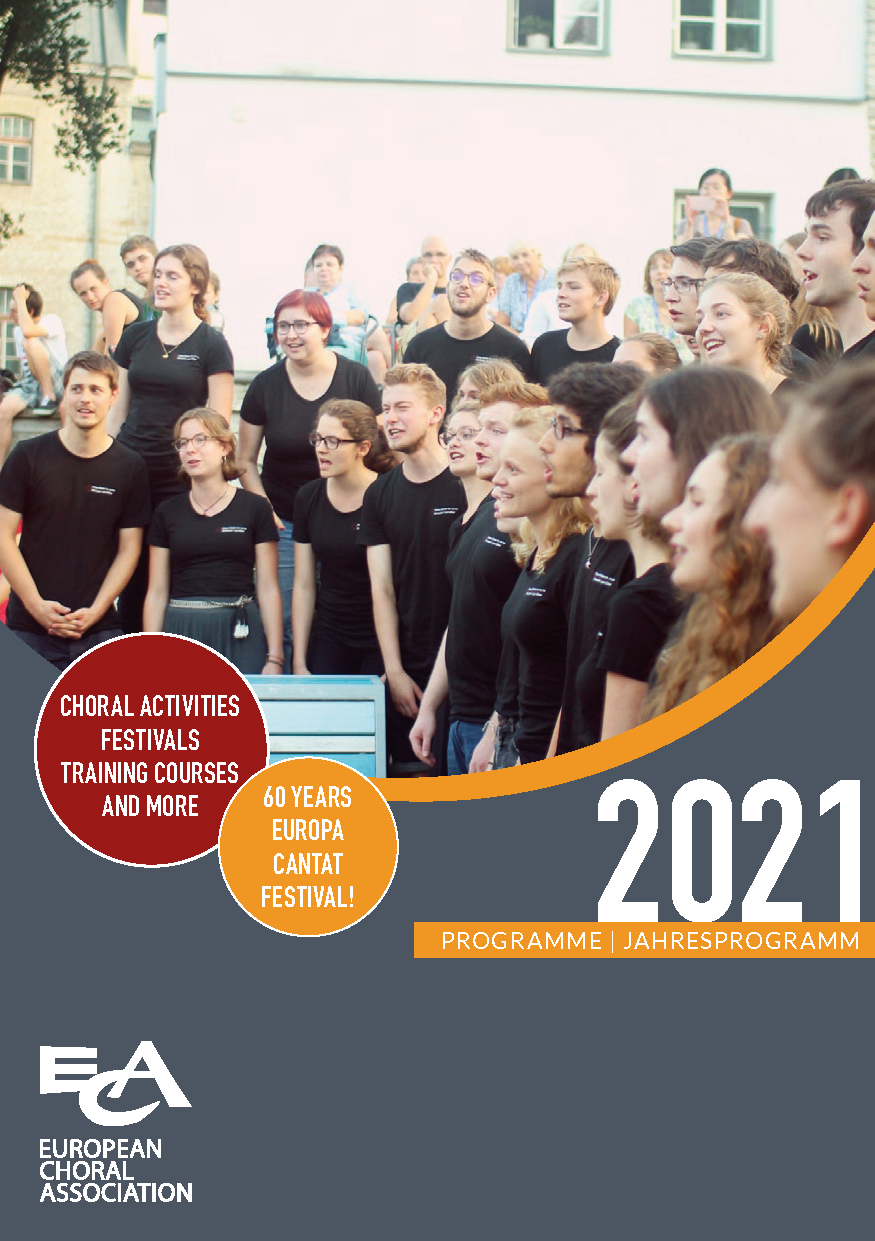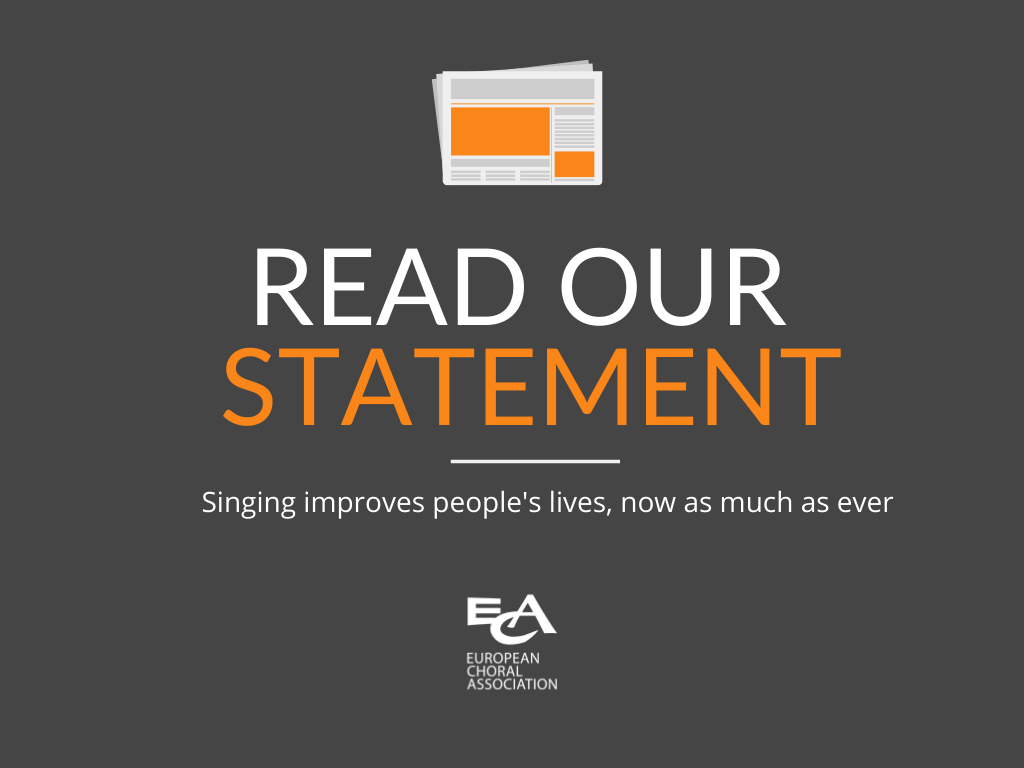Covid-19 outbreak
How does the choral world deal with it?
Survey
With the worldwide outbreak of COVID-19 our lives have drastically changed over the last year.
We recognize that in the choral field many are strongly affected by the consequences of the measures our governments and local authorities have taken in order to slow down the spread of the virus and the bad image that collective singing has received in the press.
Following our survey from last year, we would like to hear how you have been affected in these challenging times, and how you see the future as we transition out of the pandemic. Our aim is to identify the impacts of COVID-19 on the sector and what support it will need going forward.
We will share anonymised results of the survey once we have received sufficient responses for analysis.
Please help us achieve this by filling in this short questionnaire, and please share widely!
With thanks to Prof. Dr. Kathrin Schlemmer, Tobias Brommann, Jan Schumacher, Ester Petri and Dr. Johannes Graulich, the authors of the ChoCo Studie 2021: Chormusik in Coronazeiten for allowing us to integrate some of their questions here.
Singing improves people’s lives, now as much as ever
The world of collective singing has been severely hit by the Covid-19 pandemic. Like most other activities, rehearsals, concerts and singing in schools ended abruptly when lockdown began. In most European countries, this took place in mid-March, and saw schools closed, church services stopped and people asked to stay at home to flatten the curve.
Online singing boomed and people got inventive to keep singing together. In lockdown, many tried different online tools to stay in touch and continue rehearsing. Unfortunately, latency substantially restricts digital possibilities for collective music-making, with everyone but the conductor usually having to mute their microphones. Still, the need to keep singing has led many to join sing-along and open singing sessions, to watch warm-up videos and to produce virtual choir videos. Beyond the digital, even car rehearsals with FM transmitters allowed some to sing together in a limited way.
The human contact for singers (albeit virtual) lifted people’s spirits in otherwise challenging times. Many parents reported that weekly rehearsals were the only activity their children were looking forward to. Nevertheless, everyone eagerly awaited the end of the strict lockdown measures and their first real polyphonic collective singing experience in months.
Is singing together really dangerous? When lockdown started to ease across Europe, group activities such as sports were slowly allowed again, first outdoors then indoors. However, reports of ‘superspreaders’ causing numerous infections within some choirs led several governments to forbid choir rehearsals and performances in any form, indoors or outdoors. It should be noted that all reported cases of mass infections in choirs occurred shortly before lockdown. No cases have arisen, as far as we are aware of, in choirs that have since restarted their activity (as early as end of April in Norway), observing the same hygiene and distance rules that apply to other group activities, often with a bit of extra security, e.g. a bigger distance between singers.
Collective singing is an activity that actively supports the immune system, often recommended for those with breathing and lung disorders. It has suddenly been labelled as ‘dangerous’, despite limited scientific examination of the subject and with no clear evidence that infections occurring in a small number of choirs were caused by the act of singing itself. The European Choral Association – Europa Cantat has been gathering what scientific evidence exists to date in its Covid-19 Resources document (https://cutt.ly/9u4VZ5h). Whatever science proves in the end, it is not singing that is dangerous, Covid-19 is.
Ideas, Tools & Resources
The current worldwide Covid-19 crisis has disrupted the lives of people almost everywhere, and the choral world has also been affected heavily in most countries. However, the situation is not the same everywhere. We are closely following the developments and listening to the needs and wishes of the sector and trying to respond to questions that are reaching us. As a European association, one important role we can have is to find examples of good practice and spread them within our network to avoid that each national choral association / each conductor or choir manager has to start from scratch. Whatever we may write in this document and whatever your colleagues in other countries may be doing, you will have to follow the rules and regulations of your country or your regional/local government.
Share your updates, tools and resources with us! The document accepts comments and suggestions and we have also set up a Facebook post where you can add your inspiring stories, videos and online resources.
Watch the webinar on digital tools, useful for singing together online: Sonobus, JamKazam, Jamulus, Soundjack and Digital Stage.
Activities of 2021 and beyond
With a heavy heart, we announce that almost all events of 2020 had to be rescheduled and adapted to the current world-crisis. You can find the digital version of the Brochure of Activities 2021 right below.
We keep this list updated in our monthly newsletter. To stay up to date with the latest news, please subscribe to our newsletter.






